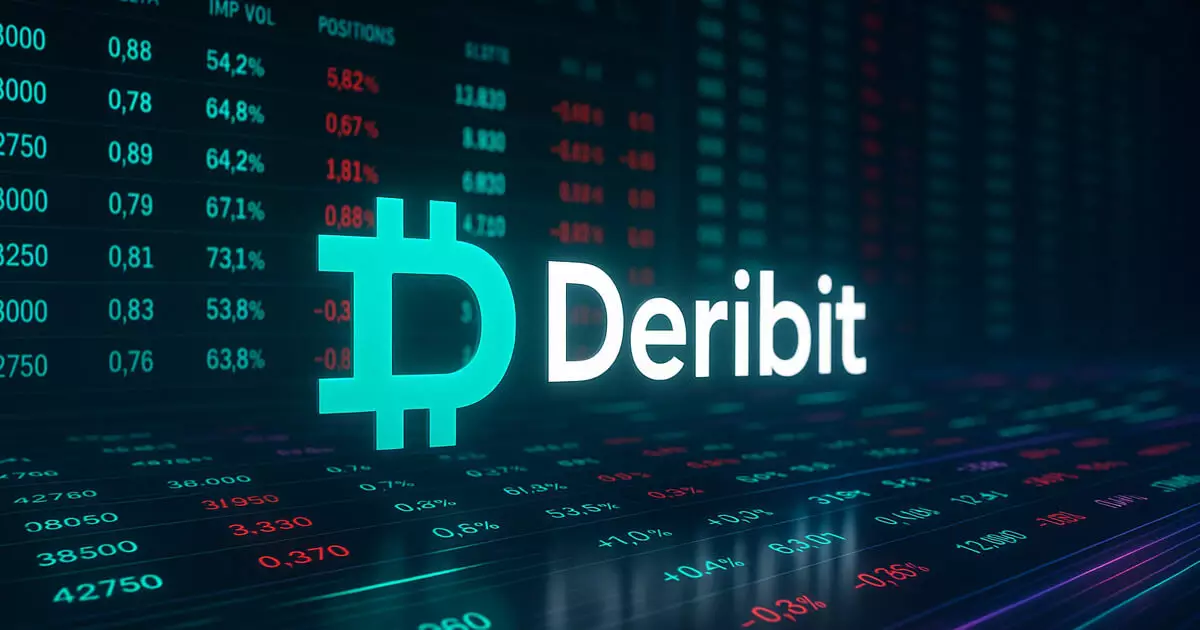In a bold move, Coinbase has set the cryptocurrency world abuzz by agreeing to acquire the derivatives trading platform Deribit for a staggering $2.9 billion. This acquisition, which stands as the largest in Coinbase’s history, is not merely a financial transaction but a strategic leap forward that underscores a potential redirection in the crypto landscape. With Deribit affirming the deal through social media, it appears both parties view this union as an opportunity to craft a more robust global derivatives market, consolidating their respective strengths into a singular influential entity.
The Impending Dominance in a Nascent Sector
Deribit is emerging as a formidable player in the crypto arena, having processed around $1.2 trillion in total volume in the previous year alone. This impressive figure highlights the rapid growth of the derivatives sector, which already constitutes a significant portion of daily trading volumes in cryptocurrencies. As Coinbase grapples with establishing itself more firmly in derivatives, acquiring Deribit not only accelerates this goal but also equips it to compete more fiercely against offshore rivals who have so far outpaced it in this lucrative market. The stakes are high, for the future of crypto trading lies increasingly in derivatives, where the real market action happens.
Regulatory Challenges and Strategic Promises
Nevertheless, this acquisition isn’t without its hurdles. Coinbase’s ambitions hinge on obtaining regulatory approval to transition Deribit’s valuable licenses to its name. With the evolving stance of regulators in the United States hinting at a more accommodating approach to cryptocurrency regulation, this deal may symbolize the dawning of a new era for crypto exchanges. The implications of a clearer regulatory framework could spur a flurry of activity among platforms seeking to innovate and expand, effectively reshaping the industry. However, the reality is that until such approvals are secured, this ambitious plan faces an uncertain trajectory laden with bureaucratic obstacles.
Climbing Up in a Competitive Landscape
Competitors within the industry are keenly aware of Coinbase’s moves. For instance, Kraken has also been on the prowl, acquiring futures broker NinjaTrader for $1.5 billion, indicating that the competition is tightening around derivatives trading. This ongoing consolidation highlights a crucial shift within the crypto sphere, where larger exchanges are not just competing for consumer trust but are vying for dominion over the future of crypto trading as a whole.
Deribit: The Crown Jewel of Crypto Derivatives
Deribit’s successful transition to a Dubai-based entity with a full license from the Virtual Assets Regulatory Authority (VARA) further amplifies its allure to Coinbase. This gives them a legal framework to offer top-tier derivatives trading to institutional clients, broadening their market reach. As exchanges face increasing pressure to comply with regulatory standards, leveraging licenses from jurisdictions with clear regulations can be a game-changer.
With all these factors at play, Coinbase’s decision to leap into this acquisition reflects not just a bet on Deribit’s existing infrastructure but a firm belief in the long-term potential of a harmonized derivatives ecosystem. This acquisition could mark a watershed moment not just for Coinbase, but for the entire crypto market that stands on the precipice of mainstream acceptance.
The crux of this acquisition is clear: Coinbase is not merely following trends; it is aiming to set them. Whether it will succeed in this ambitious plan remains to be seen, but one thing is certain—it is a bold power play that could ripple across the cryptocurrency sphere for years to come.

